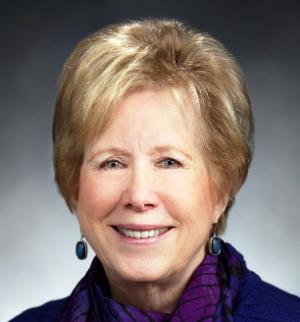Four states and DC have now legalized marijuana. More are lining up to join the club in 2016, while in others, the plans are more long-term. Here's an overview.
Journalist and Mexico resident has Robert Joe Stout has written a new book about the "landmines" facing Mexico, including the drug war and official corruption. It couldn't be more timely.
Help for veterans could be on the way, plans for 2016 initiatives are getting underway, Arizona doctors win a court case, existing programs in the Northeast expand, and more.
More jail guards with contraband issues, another cop with a serious pill problem. It never ends.
A new Maine legalization group lays out its vision, take your medical marijuana card when you go to Nevada next year, asset forfeiture gets ripped by USA Today, the New York Times takes a look at a questionable law enforcement practice, and more.
Some Alaska officials are proving recalcitrant when it comes to legal marijuana, there could be a Senate hearing on pot legalization with DC in the cross hairs, congressional researchers release a report on a federal pot excise tax, asset forfeiture could play a role in hearings for the new attorney general nominee, and more.
Some House Republicans still want to mess with DC legalization, a key Washington state solon is planning a bill that would fold medical marijuana into the legal regulation system, federal officials issue a new code of conduct for highway asset seizures, US Marshals are reportedly going on drug raids in Mexico, and more.
A marijuana tax and regulate bill advances in DC, a legalization bill gets filed in Georgia, Seattle's mayor has a plan to regulate medical marijuana, prescription heroin is coming to Vancouver, Malta is ready to decriminalize drug possession, and more.
We have a couple of disturbing Colorado police stories, a marijuana decrim bill will be filed in Virginia, and a drug decrim one in Washington state, Connecticut patients seek to expand the list of conditions, Florida will try again on medical marijuana, and more.
State-level marijuana law reform won big in this month's elections, with legalization initiatives triumphing convincingly in Alaska, Oregon, and Washington, DC. The Florida medical marijuana initiative lost, but only because it had a higher bar of 60% of the popular vote. It ended up with 57%, a clear sign of solid majority support. And don't forget Guam -- the US territory approved medical marijuana with 56% of the vote.

The California Coalition for Cannabis Policy Reform is laying the groundwork for 2016. (CCPR)
Local marijuana reform initiatives also fared well. In Maine, Massachusetts, and Michigan, activists built on earlier successes to win more victories this year, while in New Mexico, voters in Albuquerque and Santa Fe voted in favor of decriminalizing pot possession.
All in all, a good year for marijuana law reform, the second good election year in a row. Since 2012, voters in four states and DC have been asked to legalize marijuana. They've now said yes in all of them.
And now, eyes to turn to 2016 and beyond. There are excellent prospects for more victories in the West, as well as in the Northeast. And there could be some surprises lurking out there in the middle of the country.
California, of course, is the big prize, and efforts are already well underway to ensure that legalization is on the ballot in 2016 -- and that it actually wins this time. Arizona and Nevada are also on the radar, and the Nevada initiative campaign has already turned in twice the number of signatures needed to make the 2016 ballot.
In the Northeast, both Maine and Massachusetts are initiative states, and legalization appears headed for the ballot in both. In Rhode Island and Vermont, the push will come in the state legislatures.
"Things are clearly headed in the right direction," said Marijuana Policy Project (MPP) communications director Mason Tvert, scanning the post-election terrain. "Even in a midterm where we saw large Republican gains, we also saw large gains for marijuana policy reform. A lot of people would say the turnout was smaller and more conservative, yet we still saw strong majorities approving measures making marijuana legal in various states and cities."
MPP will be backing 2016 initiatives in five states, Tvert said, although the Nevada legislature could ease its burden by just approving an initiative rather than punting to the voters.
"In Nevada, the petition drive has just wrapped up. At this point, our goal there is to pass the ballot initiative; if the legislature chooses to take an objective look and give it some real consideration, that would be excellent, too," he said.
"We also have committees filed to support initiatives in Arizona, California, Maine, and Massachusetts," Tvert said. "In California, we want to begin to raise money to support that effort, but it's pretty early in the process. We expect to see very solid support for such a measure in California, especially running in a presidential election year when support for legalizing marijuana has been growing nationwide. Prop 19 got 47% in 2010; that will be six years ago come 2016."
"We have a pretty comprehensive statewide coalition working on this," said Dale Gieringer, executive director of California NORML, which is a key part of that grouping, the California Coalition for Cannabis Policy Reform. "The coalition includes us, the Prop 19 people, Law Enforcement Against Prohibition, MPP, the Emerald Growers Association, and the Drug Policy Alliance (DPA) has been a partner in this, too."
A little less than two years out, it's a work in progress, said Gieringer.
"Pretty much all the leading groups interested in drug reform are interested in collaborating, but exactly how that will work hasn't been settled yet," he said.
Now that four states and the District of Columbia have legalized marijuana, Gieringer sees some political space for pushing the envelope.
"Home cultivation will be in it," he said. "They have that in Oregon and Colorado, and we're going to have it in California. I also want to provide for on-site consumption; we're working to get that instituted here in Oakland. In Colorado, they banned public use, which is one thing if you mean smoking pot on the street, but governments tend to have an expansive view of what constitutes public use, like a public accommodation under the Civil Rights Act. I think we can provide for licensed on-site consumption, at least by local option."
And no reason to make what he called "unnecessary concessions."
"We have a DUID law, and we don't need to change that," he said. "They didn't do that in Colorado and Oregon, and we don't need to do it. We learned a lesson in Washington -- that lack of an express DUID provision didn't make a difference -- and we're not going to repeat that."
Although more than any other group in the coalition, CANORML represents the interests of marijuana consumers, Gieringer said it's not pot smokers or growers who are going to make an initiative victorious.

Maybe Missouri's Show Me Cannabis will show us all.
"Marijuana users are 12% to 15% of the population here; we really have to depend on more than that," he said. "The users and growers will not determine this campaign. And I'm sure there will be people discontented with however the initiative turns out; there always are. But there aren't that many growers in the state, anyhow. Some growers didn't like Prop 19, but it failed for other reasons. It didn't win in Los Angeles County, and that's not because of the growers."
In some states, such as Massachusetts, activists have been piling up marijuana reform victories for years. MassCANN/NORML and the Drug Policy Forum of Massachusetts have an unbroken record of winning non-binding public policy questions on marijuana reform issues going back seven election cycles. Voters in the Bay State have also signaled their approval of marijuana law reform by passing statewide medical marijuana (2008) and decriminalization initiatives (2012).
Now, Bay State Repeal has formed to free the weed in 2016, and it has a pot populist tinge to it. The group wants home cultivation, not just to keep prices down, but "to keep the cops from busting through the door just because there is marijuana growing there" and it wants taxation and regulation, but only "moderate," not "cash-cow taxation or giant licensing fees."
In Maine, where MPP has been active, putting successful municipal legalization initiatives on the ballot in Portland and South Portland (but losing one in Lewiston), there could be not one but two legalization initiatives unless differing actors come together. In addition to the MPP effort, a new group, Legalize Maine, is also moving forward with plans for an initiative.
As with Bay State Repeal, there is a pot populist tinge. Legalize Maine couches its argument not only in terms of justice and common sense, but also talks about jobs and economic development. And it wants marijuana regulated in a way that "focuses on people instead of large economic interests that seeks to dominate the marijuana industry."
Legalization could also pop up in some unexpected places, too. While the major movement organizations already have selected targets for 2016 and have plans well afoot, things could break faster than the big players anticipate, and local activists in some states -- Arkansas and Missouri, for example -- may manage to get initiatives on the ballot without significant outside support.
In Missouri, Show Me Cannabis has been undertaking a vigorous and energetic campaign to put an initiative on the ballot in 2016. It submitted its initiative to state officials earlier this month; the first step in getting the measure before the voters. Similar efforts by different groups
are also underway next door in Arkansas.
Those Ozark-area efforts don't have the backing of big national organization behind them, but that could change.

The Drug Policy Alliance's Ethan Nadelmann wants to see the polling. (OSI)
"If these initiatives are well-drafted and the polling is strong, we'll help as best we can, but we're not making any financial commitments," said
DPA executive director Ethan
Nadelmann. "We have a major commitment in California, and we're helping
MPP draft initiatives in other states. In Missouri, let's make sure there's a solid draft initiative, and if the polling is there, well, a victory in Missouri would be very compelling."
Seeing marijuana legalization creep along the West Coast, make inroads on the East Coast, and maybe even in the Ozarks would make for a very impressive 2016, but some Midwestern activists are looking further down the road.
Led by indefatigable Tim Beck, Michigan activists have managed to pass municipal personal legalization initiatives in all the state's largest cities in the past few years. This year, they went eight for 13 with similar initiatives in smaller Michigan communities.
Michigan voters also approved marijuana in a statewide initiative in 2008, but, for Beck, getting the state's dispensary situation settled -- not legalization -- is the first order of business.
"Although the state legislature is totally controlled by the GOP, we've been working with them, and they've kind of seen the light on a regulated system with a lot of local control, which is big with Republicans," he said. "We have one of the best medical marijuana laws in the country, and it's going to get better with a regulated dispensary system, as well as ingestibles. We won 95-14 in the House, and it's going through the Senate now," he said.
"We have over 1.5 million people now living in cities that have decriminalized," Beck said. "And we liberated 140,000 this year -- on the cheap. This has an impact. When we have dispensaries and when we have decriminalization, local officials won't be able to say 'Oh, we don't want marijuana here,' because the voters do."
Legalization may not be the first order of business, but it is the ultimate goal, Beck said.
"My philosophy has never been that the solution is medical, but straight-out, unadorned legalization, but we're -having to do it on our own," he explained. "Michigan is fly-over country for the big players. It's a large state with a population of more than 10 million, so it's expensive to win a campaign, and it's a bit more conservative than the East or West coasts."
That means Michigan needs to be patient.
"Our realistic priority for the next couple of years is to work with the legislature," Beck said. "We have a new class of entrepreneurs who have come out of the closet, and we've been able to fund our own lobbyist to the tune of about $150,000. Once we get dispensaries, then we'll turn to decriminalization at the statehouse. We had a decriminalization bill this year, but it was introduced by a Democrat and went nowhere."
Beck is also waiting for the opinion polls to move further in the right direction.
"There's a weird dichotomy in our polling," the veteran activist explained. "We get well over 60% saying yes to reallocating police resources away from small-time marijuana users, but when it comes to legalization, that number drops dramatically. We might be at 50%; we'll do another poll at year's end, but I don't think much will change. It's hard to demand that anyone open their checkbook when you're only running 50%. We have to just keep going on an incremental basis. Maybe by 2018 or 2020, we'll be ready."
While Beck counsels patience, Nadelmann is counseling prudence. And while he is of course happy that all the legalization initiatives passed, he doesn't want people to think it's going to be a walk in the park from here on in.
"The downside is a sense of overconfidence, a feeling that marijuana will legalize itself," he said. "That could make it more difficult to fundraise if there's a sense that you can put anything on the ballot and not anticipate serious opposition. There could be a sense in the industry that you can be free riders while the activists raise the money."
There are other potential pitfalls. Entrepreneurs trying to push the envelope could push too far, Nadelmann said.
"Don't forget the Montana disaster," he warned, referring the wide open medical marijuana expansion there that created a backlash that drove the industry back into the ground. "Don't be short-sighted and greedy, and contribute and support the organizations working on this."
And don't forget federal pot prohibition.
It's one thing for a handful of states -- or even more -- to legalize marijuana, but as long as federal marijuana prohibition remains on the books, even the legal marijuana states could theoretically face a concerted federal effort to roll back the clock. Using federal marijuana prohibition as a hammer, a hostile Congress and president could wreak havoc with state-level regulation and taxation. (Ironically, a move to do that could result in marijuana being legal to smoke and possess in those states, but not to sell or be taxed or regulated.)
But if repealing federal pot prohibition is the Holy Grail, reformers still have a ways to go.
"A lot more states are going to have to approve this before it gets to the point where repeal can pass," said Nadelmann. "When you look at medical marijuana and how slowly that moves on Capitol Hill, you see that it wasn't until this year that we actually got something passed, and that was just to stop federal interference in medical marijuana states. I'm more optimistic about winning votes like that next year, to get the federal government out of the way."
Congress has not been especially responsive to growing support for marijuana legalization, and there's no reason to expect that to change anytime soon, Nadelmann said.
"It's hard to imagine Congress playing any sort of leadership role on this stuff," he explained.
Maybe when we have 24 legal marijuana states, not just four of them. That means there's still plenty of work to be done at the state house and the ballot box.
back to top
Hidden Dangers: Mexico on the Brink of Disaster by Robert Joe Stout (2014, Sunbury Press, 210 pp., $16.95 PB)
Today is the official 104th anniversary of the beginning of the Mexican Revolution. The uprising that began then lasted for nearly two decades and by the time it was over, nearly two million Mexicans were dead, and the country was changed forever. That revolution overthrew a sclerotic, encrusted dictatorship that advanced the country materially and brought it to the brink of the modern era, but which ignored the interests of the vast majority of Mexicans.
Are we about to see a repeat? That's probably premature, but it's notable that authorities in Mexico City have canceled the official commemorative parade set for today, afraid of trouble breaking out. There has already been trouble in Mexico City today, anyway -- with masked demonstrators attempted to block access to the international airport -- so that decision may well be a prudent one.
What is motivating the protests today -- and for nearly the last two months -- is the disappearance (and almost certain murder) of 43 radical students from a provincial teachers' college in the south central state of Guerrero. It seems clear that the students and their threats of demonstrations were seen as a threat by Maria de los Angeles Pineda, the wife of Iguala Mayor Jose Luis Abarca. Pineda, who has been identified as a leader of the Guerreros Unidos organized crime group (commonly referred to as cartels), is believed to have ordered Iguala municipal police to "take care of" the unruly students.
According to a version of events delivered by Mexican Attorney General Jesus Karam Murillo, Iguala police shot up the commandeered public buses the students were riding in (commandeering buses is not unusual in political protests), killing some of the students on the spot. The remaining students were then allegedly turned over by Iguala police to Guerreros Unidos gang members, who, according to Karam, killed them all, burned their bodies, chopped them to bits, and threw them in a river.
Of course, it took Karam a month to make that announcement, and in the meantime, anger over the disappearances grew by the day. Demonstrators attacked and burnt part of the state capitol complex in Chilpancingo; they attacked and burnt municipal buildings in Iguala; they fought pitched battles with police on the road to the Acapulco airport. And the demonstrations and solidarity protests are spreading.
This is a brutal scandal that has shaken even brutal scandal-plagued Mexico. Federal authorities have now arrested the mayoral couple, along with dozens of police men and gang members (some are undoubtedly both). The governor of Guerrero has been forced to resign. And President Enrique Nieto Pena and his government are now besieged, even though the mayor and the governor belonged to another political party.
This may be the landmine that sets off a long pent-up social explosion south of the border. I use the word "landmine" deliberately, for that is the precise term used by long-time journalist and current Oaxaca resident Robert Stout in his new book, Hidden Dangers. Although it appears to have been largely written before Pena Nieto took office nearly two years ago, it seems remarkably prescient.
In Hidden Dangers, Stout identifies several festering -- and interconnected -- problems facing Mexico, the result of ongoing economic and political changes.Looming large among the potential landmines are emigration, the war on drugs, rising popular political movements of resistance, official corruption and impunity, and increasing environmental degradation.
With the case of the missing 43 students, Mexico is stepping on two of those landmines: the war on drugs and the problem of official complicity and corruption. As Stout makes clear, Mexico's drug corporations (he never uses the word "cartels") have thrived in an atmosphere of violence and corruption and official complicity. I wouldn't say that drug money has corrupted Mexico's institutions because they have been deeply corrupted for years, as Stout illustrates throughout the book, but it has deepened the corruption and blurred the line between organized crime and state power.
What Stout has to say about the drug cartels and the counterproductive policies adopted on both sides of the border to stop them is probably not new to regular readers of these pages. Through violence and cold, hard cash, the cartels manage to suborn security forces, elected officials, and legitimate businesses alike. And heavy-handed, militaristic attempts to quash them, especially with an army that seems to have no notion of human rights, has only resulted in more violence and more mistrust of government.
But it is complicated, and looking at Mexico solely through the prism of its war on drugs is too narrow a focus to get a good grasp on the country's realities. Mexico's drug cartel problem doesn't exist in a vacuum; it is part and parcel of a deeper social and political malaise, which, in Stout's view, is related to the country's authoritarian, unresponsive government and its inability or unwillingness to address the country's aching concerns.
And it's not just the PRI, the party that emerged from the Revolution to govern the country as "the perfect dictatorship" until the election of Coca Cola executive Vicente Fox in 2000. One of Stout's contributions to our understanding is his explication of the authoritarian character that defines all political parties in Mexico. Whether it’s the PRI or the rightist PAN or the leftist PRD, all have adapted the same top-down, strongman politics that characterized the PRI in its heyday.
It is worth noting that the mayor of Iguala and his wife are members of the PRD, which is a sad reflection on the Mexican left. But Mexicans don't need to read Stout's book to understand that the same rot grips all the parties, and that's part of the reason even the PRIista Pena Nieto is feeling the heat over the Iguala disappearances. The problem is systemic, Mexicans understand this, and that's why they're so angrily taking to the streets right now.
Hidden Dangers does a very good job of tying together the disparate "landmines" facing Mexico right now. Especially for readers who have approached the country primarily through the lens of drug policy, it is a welcome opening of perspective. And, at only a bit more than 200 pages, it's a relatively quick read, packed with information and plenty to ponder. Check it out.
back to top
Help for veterans could be on the way, plans for 2016 initiatives are getting underway, Arizona doctors win a court case, existing programs in the Northeast expand, and more. Let's get to it:
FederalLast Thursday, a bipartisan group of legislators filed a bill to allow Veterans Affairs doctors to recommend medical marijuana. A dozen House members led by Reps. Earl Blumenauer (D-OR) and Dana Rohrabacher (R-CA) introduced the Veterans Equal Access Act Thursday. The bill would allow Veterans Affairs (VA) physicians to discuss and recommend medical marijuana to their patients, a right enjoyed by physicians outside of the VA system. Click on the link to see all the sponsors and more details of the bill. The bill is not yet available on the congressional web site.
Arizona
Last Thursday,the Arizona appeals court ruled doctors can't be charged for making medical marijuana referrals. The Court of Appeals ruled that doctors who recommend medical marijuana to patients are not subject to criminal charges even if they failed to do a review of a year's worth of patient records. Police sent an informant to the office of Dr. Robert Gear in 2012, and Gear signed a medical marijuana certification based on a physical exam, but before receiving the patient's records. Prosecutors in Navajo County charged him with forgery and fraud, but the appeals court ruled that the state medical marijuana law gives him immunity. "In enacting the (law), the voters explicitly barred prosecution of a physician for providing 'written certifications' or 'for otherwise stating' that certain patients may benefit from `the medical use of marijuana,'" presiding Judge Patricia K. Norris wrote in the opinion. The case is State v. Gear.
Connecticut
On Wednesday, a state doctors' panel heard requests to add more qualifying conditions. The state Medical Marijuana Program's Board of Physicians heard from patients and advocates pleading with them to expand the state's medical marijuana law to include more medical conditions. The board has received petitions seeking to add severe psoriasis and psoriatic arthritis; sickle cell disease; Tourette's disorder; and post-laminectomy syndrome with chronic radiculopathy -- chronic pain after back surgery -- to the list of qualifying maladies. The program is accepting written submissions, petitions, and testimony from the public until December 12 and will deliberate on the issue in January. If it approves adding new conditions, that's just the first step. Click on the link for all the bureaucratic details.
Florida
On Monday, Florida advocates announced plans for a 2016 initiative. United for Care, the group behind this year's medical marijuana initiative that came up just short, has announced it will try again in 2016. "We are swiftly mobilizing a new petition push to get medical marijuana" on the 2016 ballot, United for Care director Ben Pollara told supporters this week in a fundraising announcement. This year's Measure 2 won 57% of the vote, but it needed 60% because it was a constitutional amendment. It looks like the group is going to go the constitutional amendment route again, despite the higher bar it creates.
Iowa
Last Thursday, the state Pharmacy Board punted on reclassification. The Board has decided to defer a decision on whether to reclassify marijuana from Schedule I to Schedule II under state law until its January meeting. The Board could have decided at its Wednesday meeting to recommend to the legislature that marijuana be rescheduled after a public hearing Monday, but while it said marijuana does have medical use, it also worried that it has high abuse potential. The board was (in)acting on a petition from Des Moines medical marijuana activist Carl Olsen.
Nevada
Last Wednesday, state officials announced Nevada will honor out-of-state medical marijuana cards. Once dispensaries begin to open in the state next year, people holding medical marijuana recommendations from other states will be able to purchase marijuana there.
New Jersey
Last Friday, the state approved its fourth dispensary. The state Health Department has issued a permit for a fourth dispensary to start growing medical marijuana ahead of a scheduling opening next spring. The Breakwater Alternative Treatment Center won approval last Friday.
South Dakota
Last Saturday, activists met to plot next moves on medical marijuana. Activists met over the weekend in Sioux Falls to plot how to move forward in a state that has twice rejected medical marijuana at the ballot box. A 2006 initiative lost by just four points, but a 2010 initiative lost by a whopping 32 points in the year of the Tea Party. Now, supporters will try to get a bill moving in the state legislature, but if that fails, they are pondering a 2016 ballot initiative.
Washington
On Monday, a key state senator outlined her medical and recreational marijuana regulation bill. State Sen. Jeanne Kohl-Welles (D-Seattle) said she plans to file a bill that would regulate both recreational and medical marijuana in a single system, slash marijuana taxes, and allow home cultivation of up to six plants for any adult-- not just medical marijuana patients or caregivers. The bill would phase out collective gardens and generally fold the medical marijuana system into the state's regulated marijuana system. Kohl-Welles hasn't filed the bill yet and said she is consulting with stakeholders and legislators, but she said she would pre-file it next month.
Also on Monday, Seattle's mayor released his medical marijuana regulation plan. Mayor Ed Murray's office unveiled its plan for regulating medical marijuana collective gardens and dispensaries. The plan would create two classes of collective gardens. Class 1 would operate dispensaries, while Class 2 would not and is subject to fewer regulatory restrictions. Under state law, recreational marijuana is regulated at the state level, but medical marijuana is not. While efforts to regulate medical are likely in the state legislature next year, Murray said even if they pass, they wouldn't go into effect until 2016, so the city is moving to regulate now.
[For extensive information about the medical marijuana debate, presented in a neutral format, visit MedicalMarijuana.ProCon.org.]
back to top
It never ends. More jail guards with contraband issues, another cop with a serious pill problem. Let's get to it:
In Tabor City, North Carolina,
a Tabor Correctional Institute jail guard was arrested last Friday after being recorded giving doses of
Xanax to an inmate. Sabrina Wallace, 42, went down after the inmate agreed to cooperate with investigators. She is charged with providing drugs to an inmate and is out on an unsecured bond.
In Kerrville, Texas, a Kerr County jail guard was arrested Sunday on charges he smuggled drugs and other contraband into the jail. Carl Birdwell, 22, went down after an investigation that began in December when administrators noticed "suspicious activity" in and outside of the jail. He was one of 11 people indicted in the contraband scheme. He allegedly smuggled alcohol, tobacco, pills, a cell phone, and more to inmates. He is charged with organized crime offenses.
In Knoxville, Tennessee, a former Newport Police detective was sentenced Monday to 7 ½ years in federal prison for peddling pain pills. James Finley Holt, 59, went down after a snitch agreed to help federal law enforcement, telling the feds he had sold him stolen items, which Holt then sold at a convenience store he owned. Further investigation revealed that Holt was buying and selling hydrocodone and Xanax, sometimes in his Newport police cruiser. When agents executed search warrants, they found cocaine, pills, and a bottle of testosterone in his locker, nine different prescription pill bottles, loose pills, and a grinder in a safe under his desk, more pills and pill bottles in his cruiser, and a sawed off shotgun at his home. He was convicted of federal drug distribution charges.
back to top
A new Maine legalization group lays out its vision, take your medical marijuana card when you go to Nevada next year, asset forfeiture gets ripped by USA Today, the New York Times takes a look at a questionable law enforcement practice, and more. Let's get to it:

Highway patrol or highwayman? Asset forfeiture gets more criticism. (flickr.com)
New Maine Legalization Group Wants Home Grows, Social Clubs. Calling itself Legalize Maine, a new group has emerged with a plan to free the weed there. Group organizer Paul McCarrier said his plan is "home grown" -- a jab at the Washington, DC-based Marijuana Policy Project (MPP), which has been laying the groundwork for statewide legalization there for the past several years -- and would allow for home cultivation, the use of marijuana in social clubs, and an 8% tax on sales. MPP has not released details of what it will propose for the 2016 ballot, but its local initiatives in the state did not address home cultivation or allow for social clubs. Click on the link to read more detail on the Legalize Maine plan.
Medical Marijuana
Iowa Pharmacy Board Punts on Reclassification. The Board has decided to defer a decision on whether to reclassify marijuana from Schedule I to Schedule II under state law until its January meeting. The Board could have decided at its Wednesday meeting to recommend to the legislature that marijuana be rescheduled after a public hearing Monday, but while it said marijuana does have medical use, it also worried that it has high abuse potential. The board was (in)acting on a petition from Des Moines medical marijuana activist Carl Olsen.
Nevada Will Honor Medical Marijuana Cards from Other States. Once dispensaries begin to open in the state next year, people holding medical marijuana recommendations from other states will be able to purchase marijuana there.
Asset Forfeiture
Civil Asset Forfeiture Should "Go Away," Says USA Today. USA Today has joined the growing ranks of newspapers calling for state and federal civil asset forfeiture reform. In a Wednesday editorial, the country's third-largest daily circulation newspaper said asset forfeiture had come "unmoored" from its original intent of taking the profit out of crime and now appeared like something "one might expect in a banana republic, not the United States." The newspaper called for action on pending federal asset forfeiture reform bills and ended its editorial thusly: "Civil asset forfeiture is government at its absolute worst -- intimidating helpless citizens for its own benefit. It needs to go away."
Law Enforcement
New York Times Examines ATF Fake Drug Stash House Rip-Off Stings. The Times turns a jaundiced eye to the Bureau of Alcohol, Tobacco and Firearms' (ATF) use of imaginary stash-house stings, where undercover agents entice people into participating in what they thought were robberies of drug stash houses, only to be arrested and imprisoned, sometimes for decades. The newspaper notes that although most of the stings have survived legal challenges, some federal judges are now throwing out such cases. One federal judge in Los Angeles threw out a case earlier this year, citing "outrageous government misconduct" with the ATF "trawling for crooks in seedy, poverty-ridden areas -- all without an iota of suspicion that any particular person has committed similar conduct in the past." Almost all of the people wrapped up in the stings have been brown or black. Clarence Walker has covered this issue for the Chronicle here and here.
International
Argentina As Latin America's Newest Drug Trafficking Hub. Argentina is emerging as a new drug trafficking hub, according to this analysis in World Politics Review. Author Benoit Gomis points to a number of factors ranging from geography to the size of the Argentine drug market, as well as infiltration by regional drug operations, weak law enforcement, and corruption. Gomis suggests one thing Argentina can do is emulate its neighbor Uruguay, which legalized marijuana last year in a bid to undercut the drug trade. Click on the link to read the whole thing.
back to top
Some Alaska officials are proving recalcitrant when it comes to legal marijuana, there could be a Senate hearing on pot legalization with DC in the cross hairs, congressional researchers release a report on a federal pot excise tax, asset forfeiture could play a role in hearings for the new attorney general nominee, and more. Let's get to it:
Marijuana PolicyGOP Senator Who Will Chair DC Oversight Committee Wants Hearing on Legalization. Sen. Ron Johnson (R-WI), the likely next chairman of the Homeland Security and Governmental Affairs Committee, which has jurisdiction over the District of Columbia, said Thursday he wants to hold a hearing on marijuana legalization. He told reporters such a hearing would focus on how legalization has worked in other states. He also said he generally supports more autonomy for the District, but didn't say whether he thought DC should be able to legalize marijuana.
Congressional Research Service Releases Report on Federal Marijuana Taxation. Congress's non-partisan research arm has released a comprehensive report on the federal government setting an excise tax on the production and sale of marijuana and marijuana-related products. The report suggests that under nationwide legalization, a $50 an ounce federal excise tax would raise about $7 billion a year, and that prices could drop to as low as $80 a pound. Click on the link for more.
Washington State Pot Tax Revenues Exceed Expectations. State officials said Wednesday that they expect legal marijuana to generate $694 million in revenue through the middle of 2019. That's up from a September estimate of $636 million. The state expects to collect nearly $43 million in pot taxes by the middle of next year, $237 million more in the 2015-2017 budget biennium, and $415 million more in the 2017-2019 budget biennium.
Key Alaska Prosecutor Says Marijuana Prosecutions to Continue. John Skidmore, director of the state Department of Law's criminal division, said prosecutors will continue to move on marijuana cases despite the voters' approval of legalization earlier this month. "We are not blind or oblivious to the fact that there is a change coming, but the change is not here yet," he said. "We did communicate to our folks that right now it is business as usual. We are evaluating what to do in the future." After Washington legalized marijuana in 2012, many prosecutors quashed pending marijuana cases, and some prosecutors have done the same in Oregon this year.
Anchorage Assemblywoman Wants to Ban Pot Sales. Assemblywoman Amy Demboski has prepared an ordinance to prohibit marijuana cultivation, production, testing and sales in Anchorage. Such a move would be legal under the provisions of Measure 2, which allows local option. She said she doesn't want the Alaska's largest city to be "a guinea pig" for the rest of the state.
Medical Marijuana
Bipartisan Group of Legislators Files Federal Bill to Allow VA Doctors to Recommend Medical Marijuana. A dozen House members led by Reps. Earl Blumenauer (D-OR) and Dana Rohrabacher (R-CA) introduced the Veterans Equal Access Act Thursday. The bill would allow Veterans Affairs (VA) physicians to discuss and recommend medical marijuana to their patients, a right enjoyed by physicians outside of the VA system. Click on the link to see all the sponsors and more details of the bill. The bill is not yet available on the congressional web site.
Arizona Appeals Court Rules Doctors Can't Be Charged for Medical Marijuana Referrals. The Court of Appeals ruled Thursday that doctors who recommend medical marijuana to patients are not subject to criminal charges even if they failed to do a review of a year's worth of patient records. Police sent an informant to the office of Dr. Robert Gear in 2012, and Gear signed a medical marijuana certification based on a physical exam, but before receiving the patient's records. Prosecutors in Navajo County charged him with forgery and fraud, but the appeals court ruled that the state medical marijuana law gives him immunity. "In enacting the (law), the voters explicitly barred prosecution of a physician for providing 'written certifications' or 'for otherwise stating' that certain patients may benefit from `the medical use of marijuana,'" presiding Judge Patricia K. Norris wrote in the opinion. The case is State v. Gear.
Asset Forfeiture
Asset Forfeiture Could Be Issue for New Attorney General Nominee. President Obama's nominee to replace Eric Holder as attorney general, US Attorney for the Eastern District of New York Loretta Lynch, bragged back in January about how her office seized nearly a billion dollars through civil asset forfeiture. But with the issue in the limelight now, it may come back to bite her during her confirmation hearings. Asset forfeiture reform bills have been filed in the Congress, newspapers across the country are editorializing about abuses, and congressional Republicans are sure to use any ammunition they can to try to damage the president's nominee.
International
Cannabis Clubs Coming to Switzerland? Officials in Geneva are exploring whether to allow marijuana social clubs, while the city has joined Bern, Basel, and Zurich in creating an expert working group to craft details for a potential pilot project. Marijuana is not legal in Switzerland, but possession of less than 10 grams is effectively decriminalized. Click on the link for an informative overview.
back to top
Some House Republicans still want to mess with DC legalization, a key Washington state solon is planning a bill that would fold medical marijuana into the legal regulation system, federal officials issue a new code of conduct for highway asset seizures, US Marshals are reportedly going on drug raids in Mexico, and more. Let's get to it:

WA state Sen. Jeanne Kohl-Welles (D-Seattle) is moving to fold medical marijuana into the legal pot regulatory system.
Some House Republicans Plan to Try to Block DC Legalization. While some GOP senators have no interest in blocking DC's legalization initiative, some GOP House members do. Rep. Andy Harris (R-MD) said he "absolutely" intends to block implementation, but that he probably wouldn't try to do so until next year. Earlier this year, he successfully attached an amendment to the DC appropriation bill to block decriminalization, and that amendment passed the House, but was never taken up by the Democratically-controlled Senate. Harris called legalization "crazy policy."
Washington State Senator Outlines Marijuana Regulation Bill. State Sen. Jeanne Kohl-Welles (D-Seattle) said she plans to file a bill that would regulate both recreational and medical marijuana in a single system, slash marijuana taxes, and allow home cultivation of up to six plants for any adult -- not just medical marijuana patients or caregivers. The bill would phase out collective gardens and generally fold the medical marijuana system into the state's regulated marijuana system. Kohl-Welles hasn't filed the bill yet and said she is consulting with stakeholders and legislators, but she said she would pre-file it next month.
Medical Marijuana
New Jersey Okays Fourth Dispensary. The state Health Department has issued a permit for a fourth dispensary to start growing medical marijuana ahead of a scheduling opening next spring. The Breakwater Alternative Treatment Center won approval last Friday.
South Dakotans to Try Legislature, But Hold 2016 Initiative in Reserve. Activists met over the weekend in Sioux Falls to plot how to move forward in a state that has twice rejected medical marijuana at the ballot box. A 2006 initiative lost by just four points, but a 2010 initiative lost by a whopping 32 points in the year of the Tea Party. Now, supporters will try to get a bill moving in the state legislature, but if that fails, they are pondering a 2016 ballot initiative.
Harm Reduction
Kentucky 911 Good Samaritan Bill Proposed. At a press conference last Friday, state Sen. Chris McDaniel said he wants to file a bill that would exempt drug overdose victims and people who seek help for them from being charged with drug possession offenses. "This should be another tool to keep people from dying, and that's what we're after," he said. But McDaniel also said such an exemption from prosecution could only be used once.
Asset Forfeiture
Federal Officials Issue New Guidance for Highway Seizures. Officials with the White House's High Intensity Drug Trafficking Areas (HIDTA) program have issued new guidance for highway police in a bid to curb questionable civil asset forfeiture seizures of cash and property from drivers. The voluntary code of conduct reminds state and local police that the need to observe the Constitution and the civil rights of motorists. "Emphasize interdiction programs are NOT purposed for enhancing agency budgets," the code says. "Underscore forfeited ill-gotten proceeds be spent prudently in accordance with applicable statutes, sound policies and regulations." Asset forfeiture programs are currently under an intense spotlight in the wake of repeated revelations about abuses and aggressive enforcement by police.
Prescription Opiates
FDA Approves Second Hydrocodone-Only Pain Pill. The Food and Drug Administration has approved Purdue Pharma's extended-release Hydrocodone tablet Hysingla for use. The agency said Hysingla is designed to be difficult to abuse, but acknowledged it could still be. It is the fourth opioid to be granted abuse-deterrent status, after Purdue's reformulated Oxycontin, it's oxycodone-naloxone combo Targiniq, and Pfizer's morphine-naltrexone combo Embeda. And it is the second hydrocodone-only pill approved by the agency. FDA approved Zohydro in October 2013.
International
US Marshals Are Going on Drug Raids in Mexico. The Wall Street Journal has reported that members of the US Marshals Service have been taking part in drug raids disguised as Mexican Marines. Mexican officials flatly deny the charge, but the newspaper reported that the Marshals Service sends small teams several times a year to help hunt drug suspects, some of whom are not even wanted by the US. The Journal cited a July incident in which a US Marshal was shot and wounded while attached to Mexican Marines patrolling a field in Sinaloa. Six cartel members were killed in the ensuing shootout.
Australian MPs to Introduce Federal Medical Marijuana Bill. Members of parliament from the Labor, Liberal, and Green parties will this week file a bill that would allow medical marijuana to be grown under federal license. The bill would not require states to allow medical marijuana, but it would create a federal model and address how medical marijuana would be supplied. The MPs will brief colleagues on the plan Wednesday.
Australia's Tasmania Rejects Medical Marijuana. Tasmanian Health Minister Michael Ferguson has rejected an interim report calling for allowing the use of medical marijuana. He ruled out any changes to current laws, citing advice from the Tasmania Police. He said that Tasmania Police would not seek to criminally pursue terminally ill medical marijuana users.
back to top
A marijuana tax and regulate bill advances in DC, a legalization bill gets filed in Georgia, Seattle's mayor has a plan to regulate medical marijuana, prescription heroin is coming to Vancouver, Malta is ready to decriminalize drug possession, and more. Let's get to it:

Pharmaceutical diacetylmorphine AKA diamorphine AKA heroin. Now on prescription for some in Vancouver. (wikipedia.org)
DC City Council Committee Approves Tax and Regulate Bill. The council's Committee on Business, Consumer, and Regulatory Affairs today voted in favor of legislation to tax, regulate, and license the production, distribution, and sale of marijuana in the nation's capital. The bill is B20-466, the Marijuana Legalization and Regulation Act. Movement on the bill comes just three weeks after DC voters overwhelmingly approved the Measure 71 marijuana possession and cultivation legalization initiative. That initiative didn't address taxation and regulation because it could not do so under DC law, which leaves such moves to the council. And the council is moving.
Georgia State Senator Files Legalization, Medical Marijuana Bills. State Sen. Curt Thompson (D-Norcross) Monday pre-filed bills to legalize both medical and recreational marijuana. SR 6 is a resolution calling for a state constitutional amendment to legalize marijuana, while SB 7 is a full-fledged medical marijuana bill that would allow patients to grow their own and possess up to two ounces, allow registered caregivers to grow for patients, and allow for dispensaries.
New Mexico State Representative Talks Pot Legalization. A marijuana legalization bill died in the legislature this year, and prospects for passage in the incoming, even more heavily Republican legislature next year are not good. But that's not stopping Rep. Bill McCamley (D-Las Cruces). He says the state needs to have the legalization conversation, and he's making his case today during a meeting of the interim Health and Human Services Committee. Click on the link for some McCamley quotes.
Medical Marijuana
Seattle Mayor Releases Medical Marijuana Plan. Mayor Ed Murray's office Monday unveiled its plan for regulating medical marijuana collective gardens and dispensaries. The plan would create two classes of collective gardens. Class 1 would operate dispensaries, while Class 2 would not and is subject to fewer regulatory restrictions. Under state law, recreational marijuana is regulated at the state level, but medical marijuana is not. While efforts to regulate medical are likely in the state legislature next year, Murray said even if they pass, they wouldn't go into effect until 2016, so the city is moving to regulate now.
International
Australia's Queensland to Toughen Penalties for Drug Dealers in Fatal Overdoses. The Queensland state government is set to introduce a bill today that would compel courts to consider the death of a drug user an aggravating factor in sentencing of drug dealers. Attorney General Jarrod Bleijie said the bill was inspired by a case last year in which a man was sentenced only to probation after supplying a shot of morphine to a minor who died of an overdose.
Prescription Heroin Coming to Vancouver. Doctors in Vancouver have received the first shipment of prescription heroin to be used by former participants in a clinical heroin maintenance trial. In all, 120 severely addicted people have been approved by Health Canada to receive the drugs. The first shipment will begin to be administered this week to the first 26 participants. The patients will go to a clinic two or three times a day to receive and inject the drug. They must then wait at the clinic for at least 20 minutes to nurses can monitor them. The project is an outgrowth of the North American Opiate Medication Initiative (NAOMI) and the follow-up Study to Assess Longer-term Opioid Medication Effectiveness (SALOME).
Chile Celebrates Fourth Legalize Festival. Thousands of people attended the fourth annual Legalize festival in Santiago Monday. Part pot party, part political protest, the festival includes expositions, panels, and live music. Ancient British rockers Deep Purple were among the bands playing yesterday.
Malta Ponders Bill to Decriminalize Drug Possession. A major drug reform bill, the Drug Dependence Bill, which would decriminalize the first-time possession of drugs, went to parliament Monday. First offenders would face only fines, but repeat offenders would have to appear before a Drug Offender Rehabilitation Board and could be ordered to drug treatment if appropriate. People could grow one marijuana plant without being subject to mandatory jail time, and the bill would also allow for the use of medical marijuana.
back to top
We have a couple of disturbing Colorado police stories, a marijuana decrim bill will be filed in Virginia, and a drug decrim one in Washington state, Connecticut patients seek to expand the list of conditions, Florida will try again on medical marijuana, and more. Let's get to it:
Marijuana PolicyNew Idaho Group Forms to Fight for Pot Law Reform. A new group has formed to push for marijuana legalization in a most pot-unfriendly place: Idaho. Although it now borders two legal marijuana states -- Oregon and Washington -- Idaho continues its last-century approach to marijuana. Now, New Approach Idaho wants to change that with a new initiative effort. It has its work cut out for it: The last time activists tried to get an initiative on the ballot there, they were only able to come up with 11,000 of the necessary 60,000 voter signatures.
Virginia Legislator Will File Decriminalization Bill in January. State Sen. Adam Ebbin (D-Alexandria) has said he will fill a bill to decriminalization the possession of small amounts for the next session of the legislature. "This is not going to legalize marijuana. It is going to make it no longer have a criminal penalty," he said. Under current law, a first possession offense is a misdemeanor punishable by up to 30 days in jail and a $500 fine. Ebbin's bill would make possession a civil offense, with a maximum $100 fine.
Medical Marijuana
Connecticut Doctors' Panel Hears Request to Add More Conditions. The state Medical Marijuana Program's Board of Physicians heard today from patients and advocates pleading with them to expand the state's medical marijuana law to include more medical conditions. The board has received petitions seeking to add severe psoriasis and psoriatic arthritis; sickle cell disease; Tourette's disorder; and post-laminectomy syndrome with chronic radiculopathy -- chronic pain after back surgery -- to the list of qualifying maladies. The program is accepting written submissions, petitions, and testimony from the public until December 12 and will deliberate on the issue in January. If it approves adding new conditions, that's just the first step. Click on the link for all the bureaucratic details.
Florida Advocates Announce Plans for a 2016 Initiative. United for Care, the group behind this year's medical marijuana initiative that came up just short, has announced it will try again in 2016. "We are swiftly mobilizing a new petition push to get medical marijuana" on the 2016 ballot, United for Care director Ben Pollara told supporters this week in a fund raising announcement. This year's Measure 2 won 57% of the vote, but it needed 60% because it was a constitutional amendment. It looks like the group is going to go the constitutional amendment route again, despite the higher bar it creates.
Law Enforcement
Citizen Video Captures Denver Police Beating Drug Suspect, Knocking Down Pregnant Wife; Cops Tried to Destroy Evidence. Denver resident Levi Frasier happened upon two police officers attacking a man on the ground and began recording with his tablet computer. Police were repeatedly punching the man in the head, and when his seven-month pregnant wife approached the scene, one of the officers swept her legs out from under her, dropping her to the ground. When police noticed Frasier recording the scene, they seized his tablet without his consent or a warrant and erased the video. But Frazier had software that automatically uploaded his videos to the cloud, and now he has made it available to a local TV station, which is raising many questions about the incident. Click on the link to see the video and the TV station's investigative report.
One Colorado Town's Horribly Out of Control Snitch-Driven Drug Busts. The Denver alternative weekly Westword has a lengthy investigative report on a series of drug busts in the town of Trinidad that repeatedly wrapped up innocent people based on the word of confidential informants who stood to benefit from snitching out others. Most of the cases have now been dismissed, but not without severe damage to the innocent. Local police and prosecutors seem not to care much. Click on the link to read the whole damning piece.
Sentencing
Drug Defelonization Bill to Be Filed in Washington State. State Reps. Sherry Appleton (D-Bainbridge Island) and Jessyn Farrell (D-Seattle) will reintroduce legislation to make drug possession a misdemeanor instead of a felony. The bill will be identical to House Bill 2116, which didn't pass this year. The effort is being supported by Sensible Washington.
International
Cannabis Cafe Quietly Operating in Halifax, Nova Scotia. A members-only marijuana consumption club, the High Life Social Club, has been open for business since early September. The club doesn't allow pot smoking, just vaporizing, nor does it actually sell marijuana -- it's a BYOB (bring your own buds) operation, and local police seem to be okay with it. The only requirement for membership is a payment of $5 and an ID showing you are over 18.
back to top









